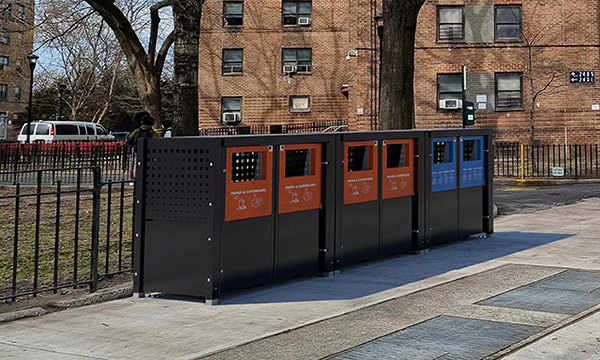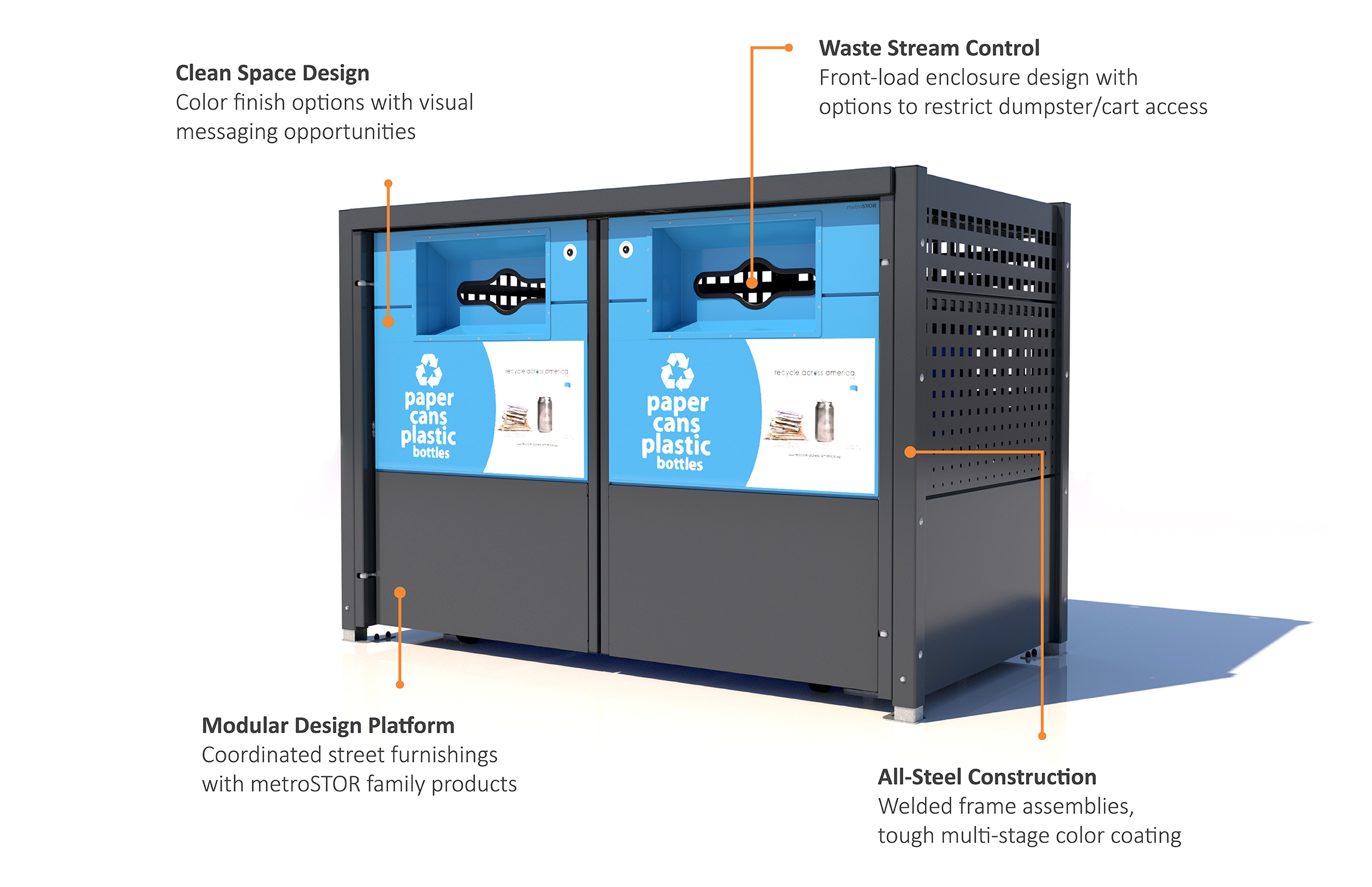

Cutting Trash Overage and Recycling Contamination Charges
Many cities and waste haulers impose fines or extra charges when trash overflows, recycling is contaminated, or waste is not properly contained. The rules can vary and unclear communication often leads to confusion – residents may unintentionally dispose of items incorrectly, resulting in entire loads being rejected and additional costs. Without the right waste management setup, it’s easy for these issues to escalate.
In shared waste areas, keeping things clean and organized can be a challenge. Unlike single-family homes, where residents are responsible for their own trash with curbside collections, multifamily properties often lack adequate storage space and clear accountability. This can lead to overflowing trash, contamination, poor recycling rates and sidewalk clutter and fire hazards.
Property managers and landlords can help by ensuring waste and recycling bins are placed in secure, well-designed enclosures that are easy to use and clearly labeled. metroSTOR enclosures, clearly marked with colours and graphics, provide a practical solution and preventing overflowing bins, keeping waste contained and using restricted apertures so that users can place items straight into the correct container without getting their hands dirty.

